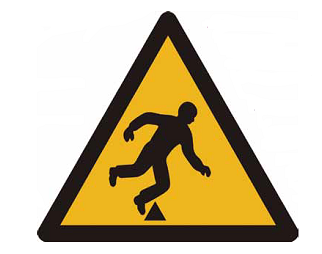Landlord 101
 Ed Fowkes, a developer and investor, and Your Property Network look at the basic rules, regulations and obligations of being a landlord.
Ed Fowkes, a developer and investor, and Your Property Network look at the basic rules, regulations and obligations of being a landlord.
Provisions
The Landlord must provide:
• Fresh Water
It may be written into the tenancy agreement, if desired, that the supply is paid for by the tenants. If that supply is interrupted, the Landlord is obliged to provide bottled water.
• Space
There must be adequate space and light for the number of people in the property.
• Heat
Adequate heating must be provided.
• Ventilation
Tenants must have access to open windows. Current Building Regulations require that fans be fitted into newbathrooms; this is a necessity for rented property.
These provisions are enforced by the HHSRS (Health and Housing Safety Rating System). Without them, the property will be deemed uninhabitable and the tenant has the opportunity and right to withhold rent. If tenants complain about the standard of the property, the Council will contact the HHSRS who will inspect and rate the property for hazards.
Hazards
Psychological
• Crowding and
insufficient Space (see provision of Space above).
• Threat of intruders.
Physiological
• Damp – includes rising and penetrative damp.
• Mould – a result of damp or condensation (see provision of Ventilation).
• Excess cold – (see provision of Heat).
Risk of Infection
• Clean water – (see provision of Fresh Water).
• Food preparation – the Landlord must provide a suitable work surface for preparing food that can be kept clean, but does not have to provide cooking facilities.
Risk of Accidents
There are 28 hazard categories, but the most common are:
• Trip For example, poorly fitted stair carpets.
• Lack of staircase handrails.
• Slippery surfaces This includes the garden, so steps and hard landscaping should be kept free of any slime or algal growth.
• Lack of warning for any hazards for example, edges of steps with an overhang should be painted with yellow grip paint.
Fire Safety Certificate
This is a legal obligation where soft furnishings are provided. Furnishings manufactured and sold in the EU since this became law in 1988 will carry a sign displaying a cigarette andmatch and stating ‘RESISTANT’. This does not include curtains and sleeping bags.
If a tenant cuts off the labels, the Landlord can claim the cost of the item from the tenant because it cannot be used again in the property.

Recommendations
The Landlord is recommended, but not obliged, to provide:
• Smoke alarms in every common part on each floor, including hallways
• Fire alarm in the kitchen
• CO detectors Fit on the side of the boiler, or on the door of the cupboard where the boiler is kept.
Fit smoke and fire alarms on the ceiling. Follow instructions supplied.
NB: Regulations, obligations and fire regulations applying to HMOs are different, and are not covered in this series. Further education is required to ensure that you comply with HMO regulations.


